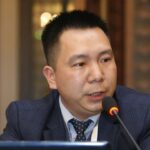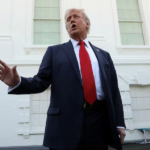US government officials, anticipating supply chain strains due to steep tariffs on Chinese goods, have discussed forming a working group to deal with the problems with urgency if there’s no breakthrough with Beijing, CBS News reported on Friday US time, citing multiple sources.
The reported tariff-related move by the US government showed it has moved from frequent and inconsistent adjustments of tariffs to the pressing need for a working group to tackle potential supply chain problems, which is a typical self-made predicament and counterproductive approach, a Chinese expert said.
While not finalized, the working group would likely include Vice President J.D. Vance, Treasury Secretary Scott Bessent, Commerce Secretary Howard Lutnick, National Economic Council director Kevin Hassett, Council of Economic Advisers Chairman Stephen Miran, and US Trade Representative Jamieson Greer, according to the report, citing sources.
The US administration has already been working on supply chain issues for some time in anticipation of the imposition of the tariffs. Medicines, semiconductors, electronic devices and critical minerals could face supply pressure after the White House and Beijing imposed a series of retaliatory tariffs, according to CBS.
The US government has recently made rounds of tariff hikes primarily targeting China. On April 2, it announced sweeping “reciprocal tariffs” on all its major trading partners.
But on April 9, it announced a 90-day pause on its “reciprocal” tariffs for most countries, excluding China, which continues to face a combined US tariff rate of up to 145 percent on its exports.
On Tuesday, the White House said that Chinese exports to the US could face tariffs of up to 245 percent.
The recent tariff-related moves by the US government have evolved from frequent and inconsistent adjustments to the necessity of establishing an emergency task force to address the situation. This clearly reveals that the government is creating its own problems and finding itself in a passive predicament, akin to shooting itself in the foot, Gao Lingyun, a researcher at the Chinese Academy of Social Sciences in Beijing, told the Global Times on Saturday.
In response to each round of US escalation, China has issued swift and legitimate countermeasures. On April 4, China announced a series of moves including a 34-percent additional tariff on all US imports.
On April 9, the Tariff Commission of the State Council announced that the additional tariff rate on US goods would be raised from 34 to 84 percent.
On April 11, the Tariff Commission of the State Council announced another increase, raising the additional tariff rate on US goods from 84 to 125 percent, as a countermeasure.
In response to the US tariff bullying and threats, China’s Ministry of Foreign Affairs has responded multiple times, reaffirming its firm stance.
In response to the White House’s claim that China is facing up to a 245 percent tariff on Chinese goods “as a result of its retaliatory actions,” a Chinese foreign ministry spokesperson said on Thursday that the US’ extortionate tariff hikes on China have become a numbers game, which economically does not make much actual difference anymore, except further demonstrating how the US weaponizes tariff to coerce and bully others.
Tariff and trade wars have no winners. China does not want to fight those wars but neither are we afraid of them. If the US continues to play this numbers game with tariffs, it will simply be ignored. But if the US continues to inflict actual damage on China’s rights and interests, China will respond with resolute countermeasures and will stand our ground to the end, the spokesperson said.
From the outset, the US’ extreme pressure exerted on China has consistently failed to achieve its intended goals. Now, the negative impact on the US’ domestic economy and the challenges it faces have become increasingly evident, highlighting an urgent need for resolution. This process clearly illustrates the counterproductive effects of the US’ tariff bully, Gao noted.












